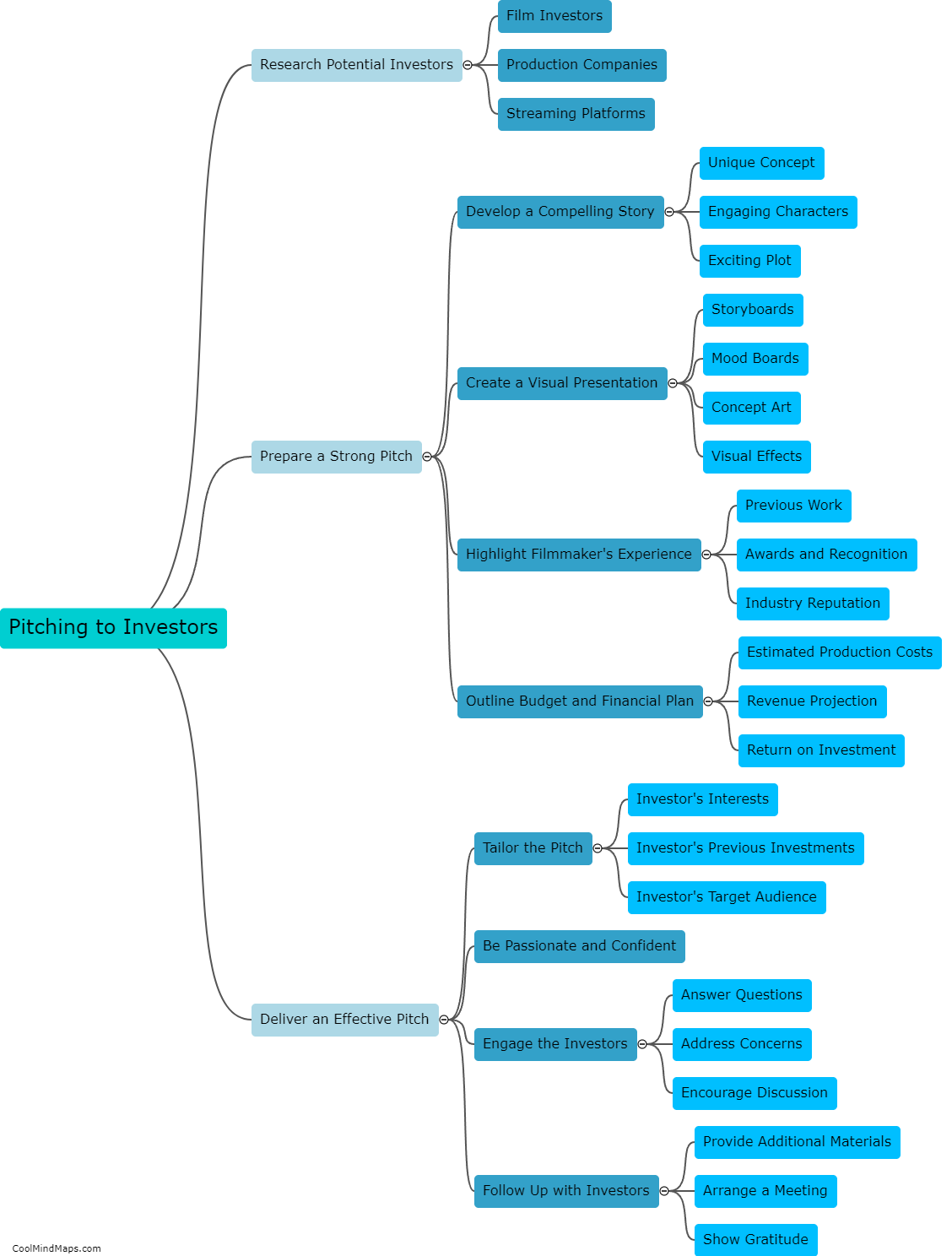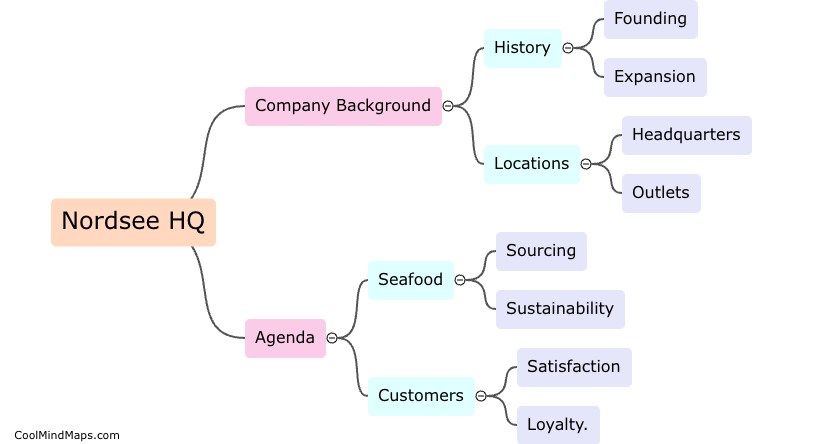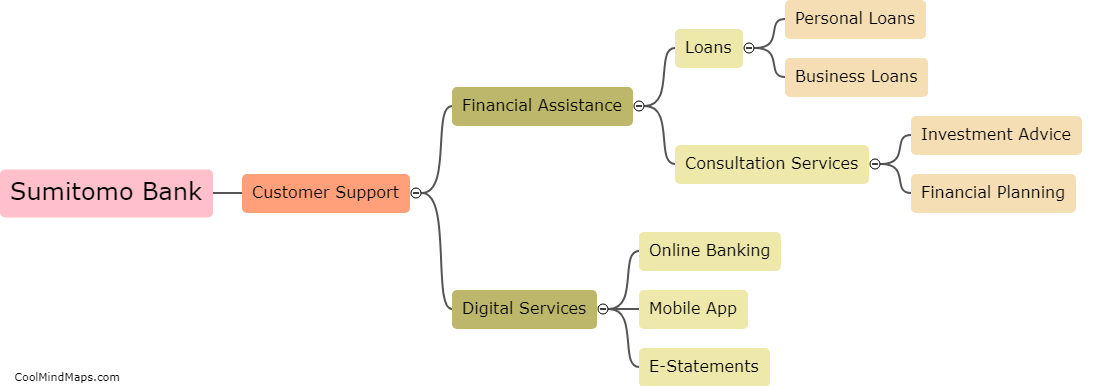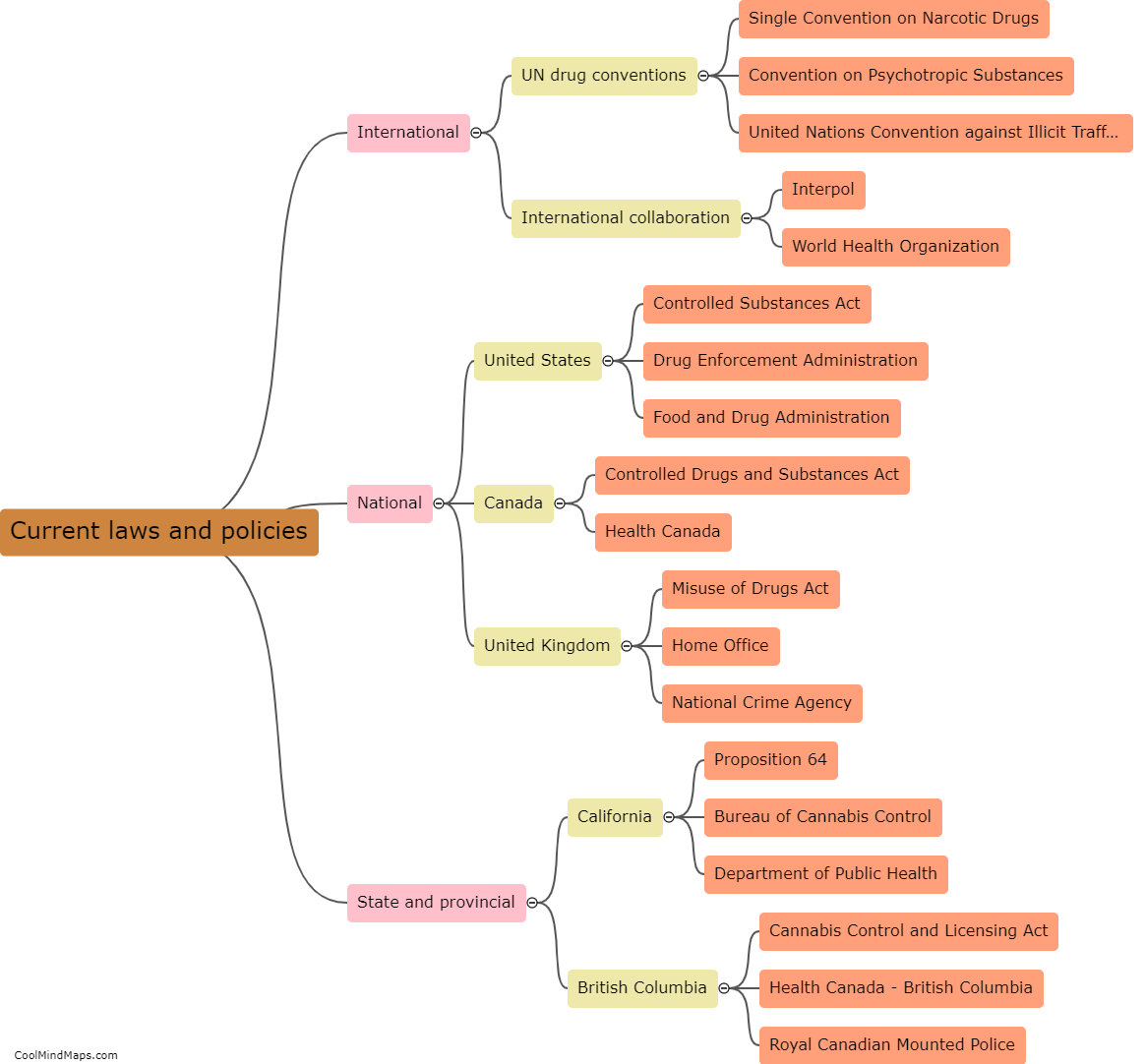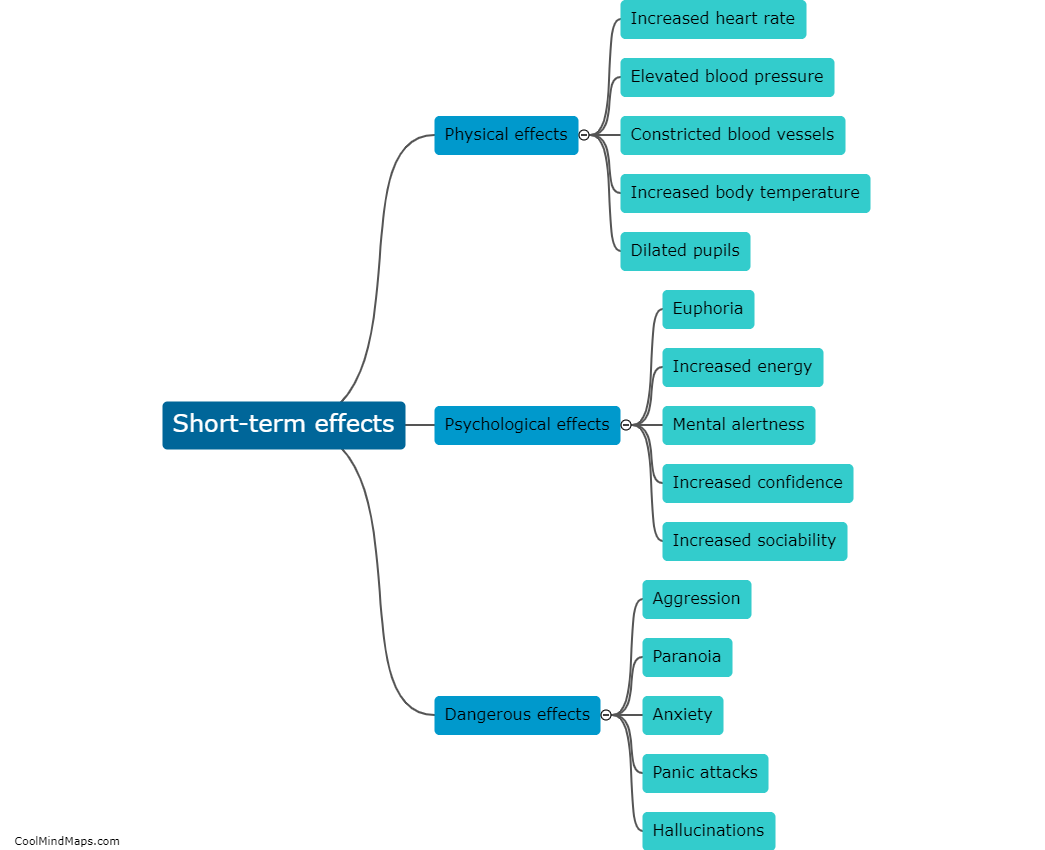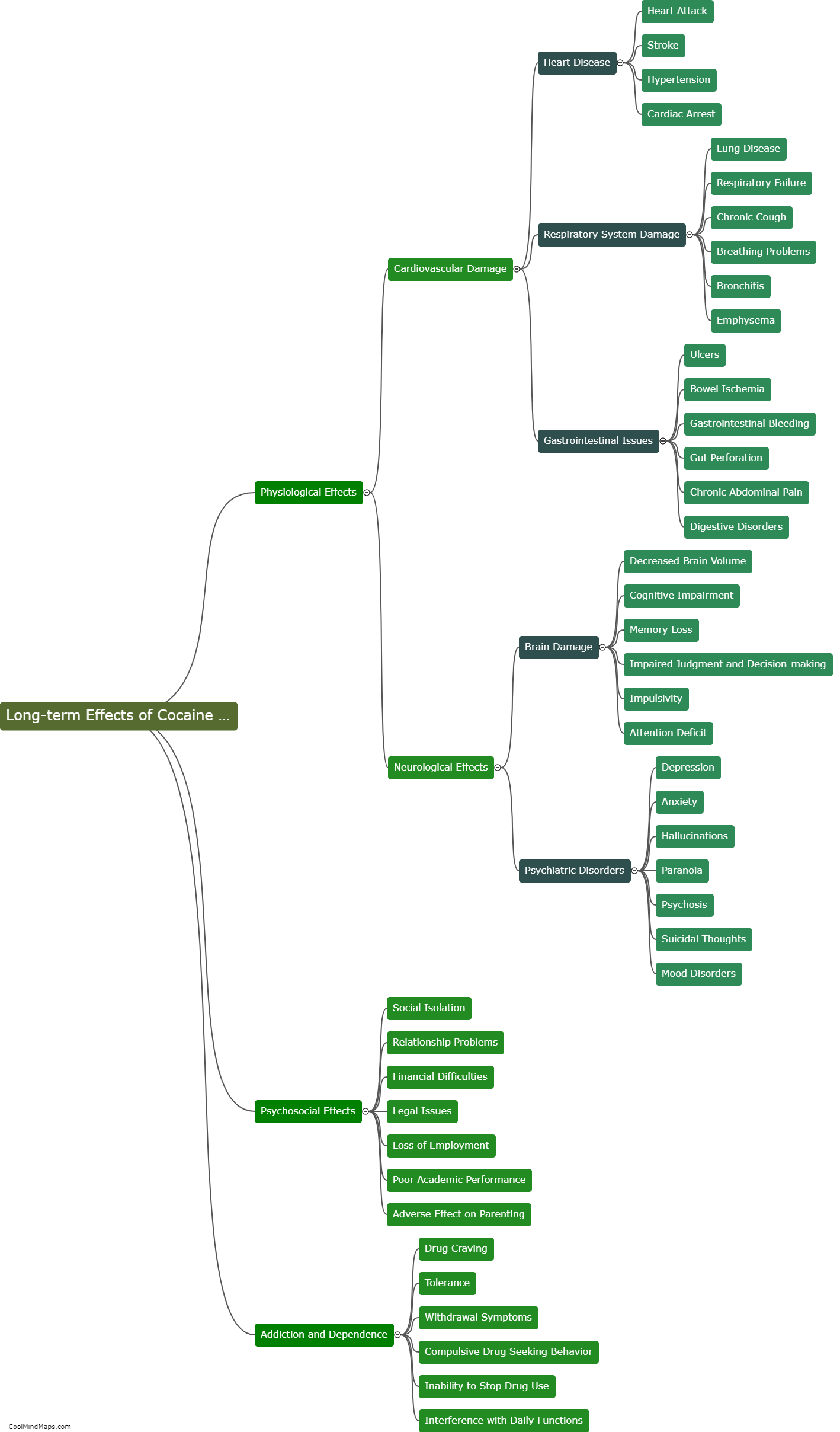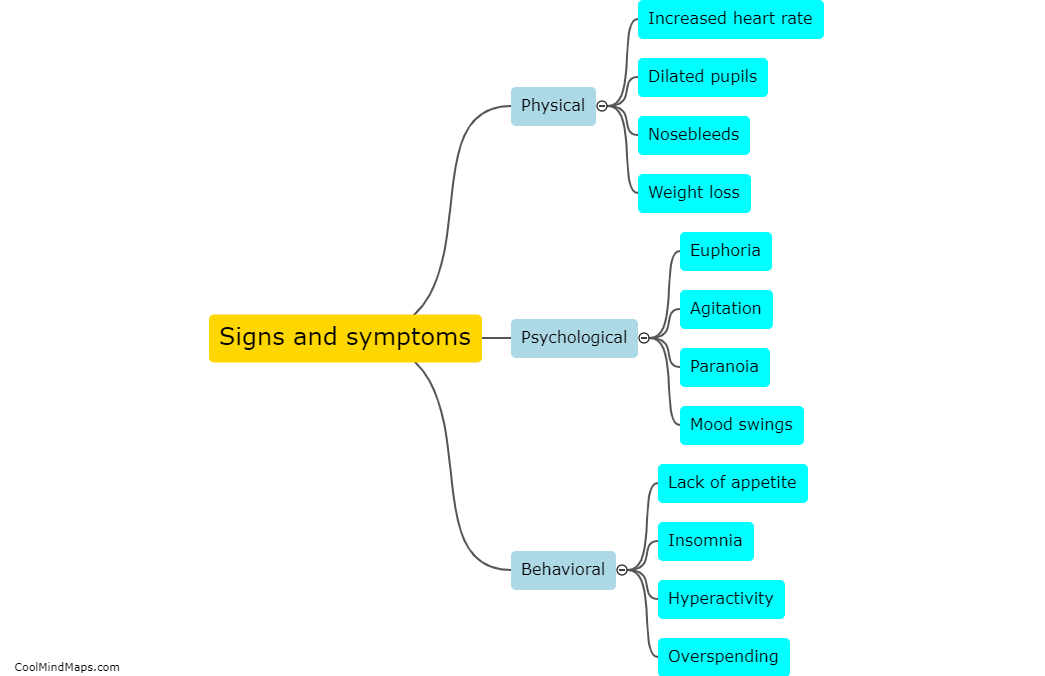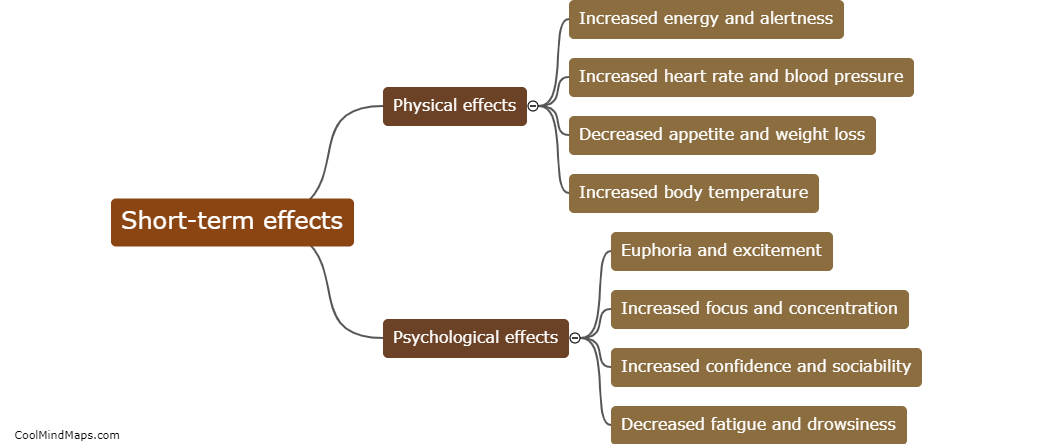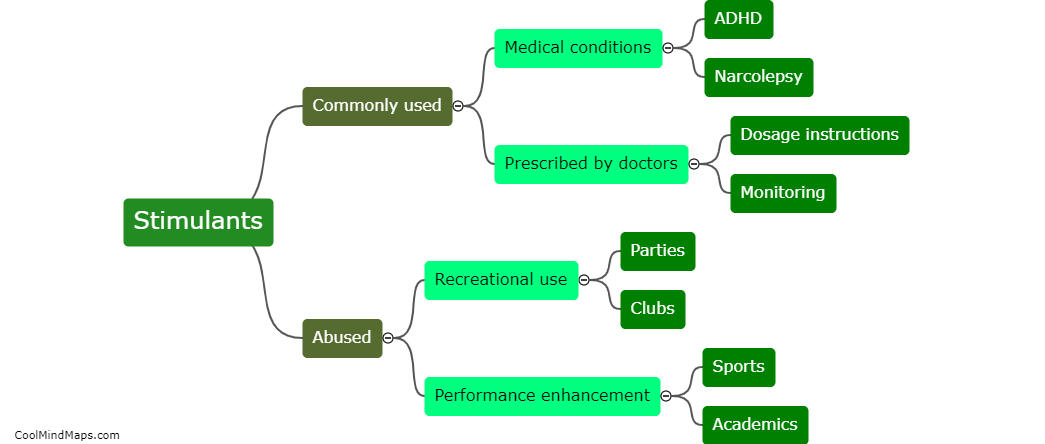How is cocaine produced?
Cocaine production involves a complex process that begins with the cultivation of coca plants, predominantly grown in South American countries like Colombia, Peru, and Bolivia. The leaves are harvested and then soaked in a mixture of gasoline and water or another solvent to extract the coca paste. This paste is further processed through chemical reactions, including the addition of chemicals like sulfuric acid and potassium permanganate, to purify and convert it into cocaine hydrochloride, the powdered form of cocaine commonly known as "cocaine." The cocaine hydrochloride can then be further processed to create different variations, such as crack cocaine or freebase cocaine. However, it is important to note that cocaine production is illegal in most countries due to its harmful effects and addiction potential.

This mind map was published on 5 December 2023 and has been viewed 117 times.
